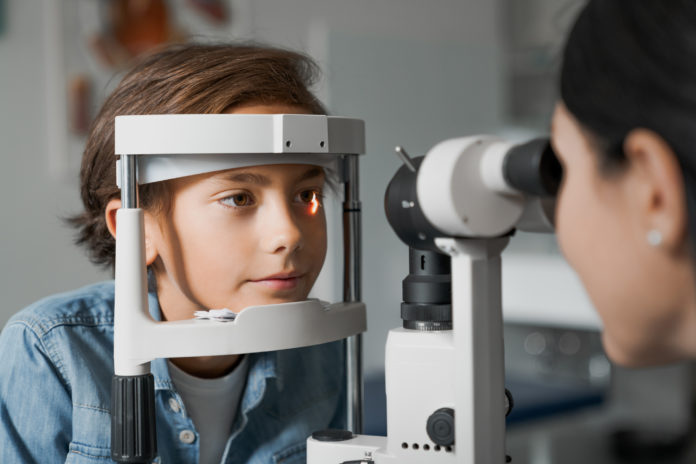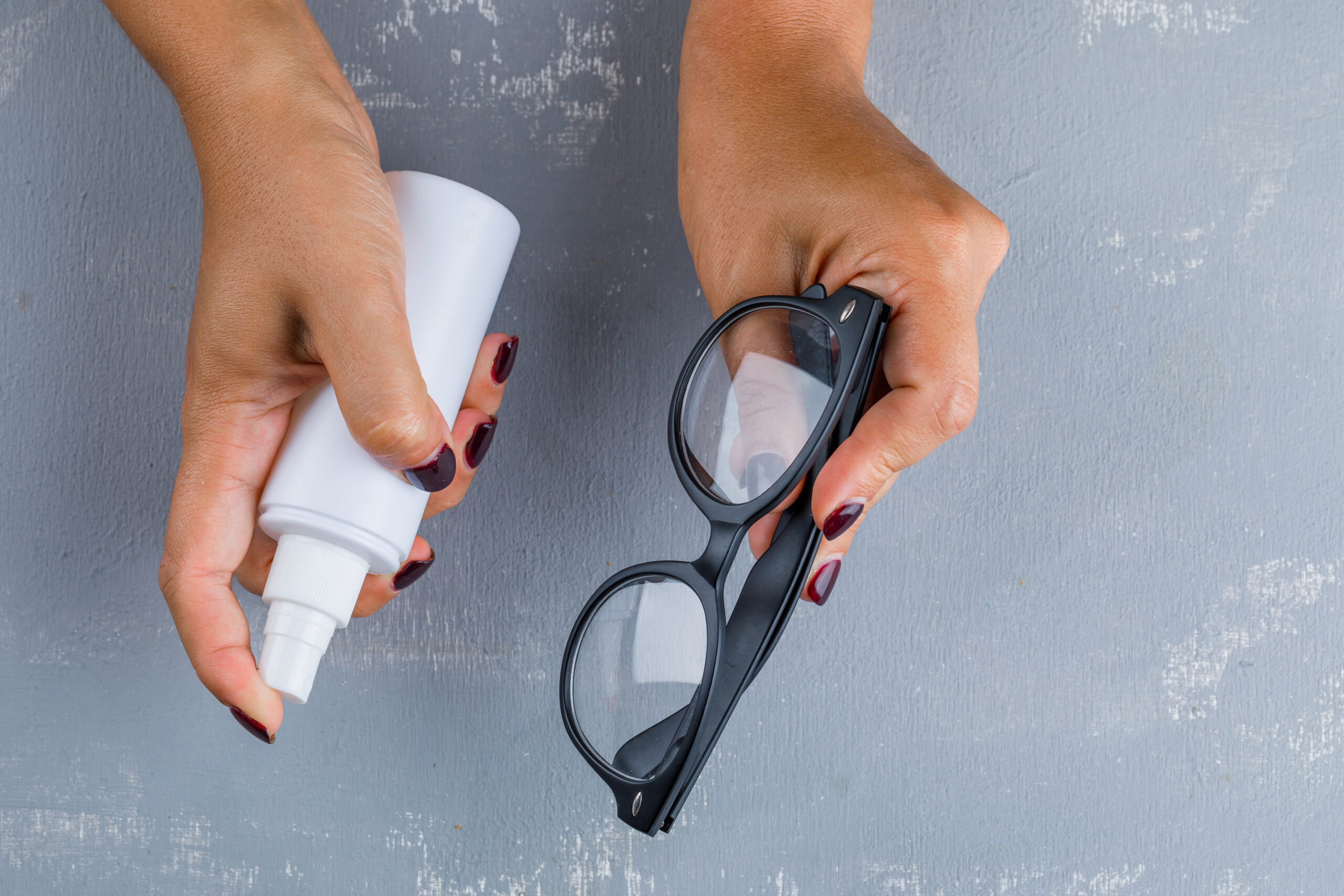A complete eyecare routine is essential to us all regardless if you are a glasses wearer or not. Taking care of your eyes isn’t just about getting the right prescription or picking the right frames. It’s about building healthy habits to maintain optimal vision for years to come. Just like other aspects of your health, your eyes need consistent care.
Whether you’re new to glasses or have worn them for years, it’s never too late to start an eyecare routine that works for you. In this guide, we’ll break down what you can do daily, weekly, and monthly to support your eye health. Plus, we’ll give you a checklist of essential habits and tips for emergency eye care.
And remember, if you ever have questions or want personalized advice, you can always visit Malaya Optical and book an appointment with our qualified optometrists. To learn more about how to choose the best optical shop in Malaysia, check out our guide.
Complete Eyecare Routine: Small Habits, Big Benefits
Your eyes are in use all day, so it’s important to keep them clean, hydrated, and protected. The delicate skin around the eyes is more prone to dryness and signs of aging, making specialized care essential.
Pay special attention to the eye area and the skin around your eyes as part of your daily routine. Proper care of your eye area can help prevent common issues such as puffiness and dark circles. Gentle cleansing and hydration are crucial for the eye area and the eyes. Using targeted products for the skin of your eye helps address the unique needs of this sensitive area. Here’s how:
Introduction to Eye Health
Eye health is a vital aspect of our overall well-being, and maintaining a proper eye care routine is essential to protect your eyes from various risks and conditions. A comprehensive eye care routine includes regular eye exams, a balanced diet rich in nutrients, and protective measures against harmful UV rays and blue light. By incorporating these habits into your daily life, you can significantly reduce the risk of eye problems and ensure optimal vision for years to come. It is crucial to prioritize your eye health and take proactive steps to safeguard your eyes from potential threats.
Start with the 20-20-20 Rule
Every 20 minutes of screen time, remember to take a break and look at something 20 feet away for 20 seconds. This simple rule helps prevent digital eye strain and reduces fatigue.
1. Clean Your Lenses
If you wear glasses, take a few seconds to clean your lenses with a microfiber cloth. Dirty lenses can cause eye strain and even headaches. Be sure to clean your glasses with a gentle solution or lens cleaner to avoid scratches.
2. Stay Hydrated
Drink plenty of water throughout the day with your daily routine to keep your eyes lubricated. Staying hydrated is important for the overall health and comfort of your eyes, especially for the prevention of dryness. Proper hydration helps maintain moisture and the natural balance in your eyes, reducing dryness and improving comfort. Dehydration can contribute to dry eyes, especially in environments with dry air.
3. Wear Sunglasses
Protect your eyes from harmful UV rays even when it’s cloudy. Sunglasses with UV protection are crucial for preventing long-term damage like cataracts and macular degeneration.
4. Check Your Vision Regularly
If you wear corrective lenses, make sure they’re working well. Pay attention to any changes in your vision, and schedule an eye exam if needed.

Weekly Eyecare: Maintenance for Optimal Health
Consistency in your eye care routine is essential for maintaining healthy eyes and preventing common issues. To use weekly maintenance steps effectively, follow these recommendations for the best results. Once a week, take time to go a step further in maintaining your eye health for the added benefits of reducing puffiness and dryness. These weekly habits support your daily routine and the long-term health of your eyes.
1. Check for Eye Comfort
Throughout the week, pay attention to your eye comfort levels. Are you feeling strain, discomfort, or dry eyes? This can indicate that you need to adjust your eyewear or take more frequent breaks.
2. Clean Your Eyewear Case
Make sure your glasses case is clean and free of dust or debris. A dirty case can cause scratches on your lenses. Cleaning it weekly ensures that your glasses are always well-protected when not in use.
3. Use Eye Drops
If your eyes are feeling dry or irritated from extended screen time or environmental factors (like air conditioning), consider using lubricating artificial tears. These can help soothe your eyes and restore moisture for the relief of dryness and discomfort for the eyes.
To use artificial tears, simply apply the recommended number of drops into each eye as directed on the product packaging.
4. Adjust Your Screen Setup
Once a week, check if your workstation is ergonomically friendly. Adjust your monitor height, reduce glare, and ensure you’re sitting at a comfortable distance from the screen.
Monthly Eyecare: Take It to the Next Level
Every month, dedicate time to essential steps in your monthly routine to support lasting results. With your monthly routine, you can address specific concerns and ensure consistent attention to the delicate eye area. For the best results, focus on targeted treatments and preventive measures. These monthly habits add up, and the benefits will show in your long-term eye health.
1. Book an Eye Exam
Even if you’re not experiencing any issues, a regular eye exam is essential to ensure that your prescription is up-to-date and that your eyes are healthy. If it’s been over six months, it’s time to see your optometrist for a check-up.
2. Clean Your Glasses Thoroughly
While daily cleaning prevents build-up, a thorough cleaning every month ensures that your glasses are free of dirt, oils, and smudges. You can also have your frames professionally cleaned at Malaya Optical.
3. Monitor Eye Health
Check in with yourself monthly—are you noticing any changes in your vision? Symptoms like blurry vision, frequent headaches, or difficulty focusing should be addressed right away with an eye exam.

Emergency Eyecare: When to Seek Help
There are moments when you’ll need to act quickly to protect your eyes. Here’s when to seek emergency care:
1. Foreign Objects in the Eye
If you get something stuck in your eye, don’t rub it. Try to flush the object out with clean water. If it doesn’t come out, seek medical attention immediately.
2. Eye Injury or Trauma
If you experience any trauma to the eye, such as a blow, cut, or puncture, seek immediate medical attention. Protect the eye with a clean cloth, and avoid touching or pressing on the eye.
3. Sudden Vision Loss or Blurriness
If you experience sudden vision loss, flashes of light, or a decrease in peripheral vision, seek emergency care immediately. These could be signs of a more serious condition, such as retinal detachment or a stroke.
Special Focus: Children’s Eye Care
Children’s eye care is a critical aspect of their overall health and development. As a parent, it is essential to be aware of the signs of potential eye problems and take proactive steps to ensure your child’s eye health. Regular pediatric eye exams can help detect any issues early on, and building healthy habits from a young age can significantly reduce the risk of eye problems later in life.
1. Early Signs to Watch For
When it comes to your child’s eye health, being observant can make all the difference. Watch for signs of potential issues, such as frequent squinting, rubbing their eyes, or trouble seeing objects at a distance. If you notice your child complaining about headaches, blurred vision, or double vision, these could be early indicators of an underlying problem. It is important to be proactive—if you see any of these signs of eye discomfort or vision changes in your child, schedule a pediatric eye exam as soon as possible. Early detection can help address concerns before they impact your child’s learning and development.
2. Building Healthy Habits for Kids
Helping your child develop good eye care habits early on can set the stage for a lifetime of healthy vision. Encourage them to practice the 20-20-20 rule: after every 20 minutes of screen time, look at something 20 feet away for 20 seconds. This simple habit can help reduce the risk of digital eye strain. When your child is playing outside, make sure they wear sunglasses with UV protection to shield their eyes from harmful UV rays. These small steps can help protect your child’s eyes and reduce the risk of future eye problems, making eye care a natural part of their daily routine.
3. When to Schedule Pediatric Eye Exams
Routine eye exams are essential for monitoring your child’s eye health and catching any issues early. Experts recommend scheduling your child’s first comprehensive eye exam at six months old, then again at age three, and once more before they start school. If your child has a family history of eye conditions or you notice any symptoms, it is important to arrange more frequent check-ups. Staying on top of regular eye exams can help ensure your child’s eyes are developing properly and that any concerns are addressed promptly, supporting their vision and overall well-being.
Integrating Eye Health Into Your Overall Wellness
Integrate eye health with your overall wellness to achieve the best results. Good eye health is closely tied to your overall wellness, and it’s essential to view it holistically. For the eyes, holistic wellness can help prevent strain and support long-term vision. Just as you care for your body with exercise, a balanced diet, and mental wellness, your eyes need the same level of attention, and the benefits of a comprehensive approach extend to both your vision and overall health.
1. Exercise Regularly
Physical activity supports healthy blood circulation, including to your eyes. Regular exercise can help prevent conditions like diabetic retinopathy, which is linked to high blood sugar levels.
2. Eat a Balanced Diet
A diet rich in vitamins A, C, and E, as well as omega-3 fatty acids, supports eye health. Incorporate leafy greens, fish, and nuts to keep your eyes in top condition.
3. Get Enough Sleep
Your eyes need rest, just like the rest of your body. Ensure you’re getting 7-9 hours of quality sleep per night to allow your eyes to heal and refresh.
4. Reduce Stress
Excessive stress can affect your vision by increasing eye pressure and leading to tension. Try stress-relief techniques such as deep breathing, meditation, and regular breaks throughout the day.
Eye Care Checklist
Here’s a simple checklist to keep your eye health on track:
Daily:
-
Wash your hands before touching your eyes.
-
Avoid rubbing your eyes.
-
Gently remove eye makeup with a specific makeup remover to protect the delicate eye area.
-
Take regular breaks from screens.
-
Wear sunglasses outdoors.
Daily:
-
Follow the 20-20-20 Rule
-
Clean your lenses
-
Stay hydrated
-
Wear sunglasses with UV protection
-
Check your vision for discomfort
Weekly:
-
Clean your glasses case
-
Use lubricating eye drops if needed
-
Adjust your workstation for comfort
Monthly:
-
Book an eye exam
-
Clean your glasses thoroughly
-
Monitor your vision for changes
Need More Help? Visit Malaya Optical
Maintaining healthy eyes isn’t a one-size-fits-all process. Every individual has unique eye care needs. If you want personalized advice, book an appointment with our qualified optometrists at Malaya Optical. We’re here to support you in building a comprehensive, effective eye care routine that works for you!


